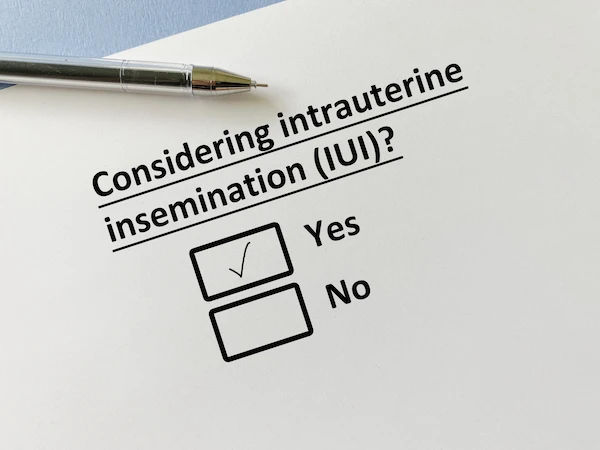Dizziness After Eating: Causes and Management Tips
Learn why dizziness can occur after eating, explore its common causes, and discover practical tips to manage and prevent it effectively.

Written by Dr. Shaik Abdul Kalam
Reviewed by Dr. J T Hema Pratima MBBS, Fellowship in Diabetes Mellitus
Last updated on 13th Jan, 2026

Introduction
That satisfying meal you just enjoyed is now leaving you feeling unsteady, lightheaded, or downright dizzy. It’s a disconcerting experience that many people face but few understand. If you’ve ever wondered why a pleasant activity like eating leads to such an uncomfortable sensation, you’re not alone. This phenomenon, often called postprandial dizziness, has several potential causes, ranging from how your body manages blood flow to what you actually put on your plate. The good news is that for most people, it’s a manageable condition. This comprehensive guide will walk you through the science behind why you feel dizzy after eating, help you identify potential triggers, and provide you with practical, effective strategies on how to manage the symptoms and reclaim your comfort after every meal.
What Does Postprandial Dizziness Feel Like?
Postprandial dizziness isn't just one single sensation. It's often described as a sudden lightheadedness or a feeling that you might faint (presyncope). Some people feel a spinning sensation, similar to vertigo, while others experience a general unsteadiness or wooziness, as if the room is subtly swaying. This typically occurs within 15 minutes to two hours after finishing a meal.
Common Accompanying Symptoms
Often, the dizziness doesn't come alone. You might also experience:
Nausea
Palpitations or a racing heart
Blurred vision
Sweating
Chest discomfort
Fatigue and a sudden urge to sit or lie down
Recognising these accompanying signs can be a crucial clue for you and your doctor in pinpointing the underlying cause.
Consult a General Physician for the best advice
Top Reasons You Feel Dizzy After a Meal
Understanding the root cause is the first step toward effective management. Here are the most common medical and dietary reasons for post-meal dizziness.
Postprandial Hypotension (The Most Common Culprit)
This is the leading cause of dizziness after eating. "Postprandial" means after eating, and "hypotension" means low blood pressure. Essentially, it’s a significant drop in blood pressure after a meal.
How Digestion Affects Blood Pressure
After you eat, your body directs extra blood to your digestive organs (stomach and intestines) to help break down food and absorb nutrients. To accommodate this, your heart beats faster, and blood vessels in other parts of your body constrict to maintain stable blood pressure. In some individuals, particularly older adults or those with autonomic nervous system disorders (like Parkinson's or diabetes), this compensatory mechanism fails. The blood vessels don't tighten enough, causing an overall drop in blood pressure and reducing blood flow to the brain, which results in dizziness and lightheadedness.
Reactive Hypoglycaemia (A Blood Sugar Rollercoaster)
This condition involves a sharp dip in blood sugar levels within a few hours after eating, especially a meal high in refined carbohydrates and sugars. Your body releases a surge of insulin to process the sudden influx of glucose. Sometimes, it overcorrects, leading to temporarily low blood sugar (hypoglycaemia). Since your brain relies primarily on glucose for fuel, this drop can cause dizziness, sweating, shaking, and confusion. Managing reactive hypoglycaemia often involves dietary changes to avoid these drastic sugar spikes and crashes.
Food Sensitivities and Allergies
For some, dizziness is a response to a specific food. True food allergies can trigger a whole-body immune response that may include a drop in blood pressure and dizziness as a precursor to a more serious reaction (anaphylaxis). More commonly, food sensitivities or intolerances (e.g., to gluten, dairy, or MSG) can cause inflammation and affect the nervous system, leading to feelings of lightheadedness and brain fog.
The Role of Diet and Meal Composition
The size and type of your meal play a significant role. Large, heavy, or high-carb meals require more energy to digest, exacerbating the blood shift to your gut. Meals very high in sodium can also cause fluid shifts that affect blood pressure, while excessive caffeine can act as a diuretic and contribute to dehydration, another key factor in dizziness.
How to Manage Dizziness After Eating: Effective Strategies
Learning how to manage this condition empowers you to take control. Here are proven strategies, from simple dietary tweaks to lifestyle changes.
Dietary Tweaks for Immediate Relief
Eat Smaller, More Frequent Meals: Instead of three large meals, opt for five to six smaller ones. This prevents your digestive system from being overloaded at once, minimising the drastic shift in blood flow.
Limit High-Carb and Sugary Foods: Reduce intake of refined carbs (white bread, pasta, pastries) and sugary drinks. Opt for complex carbohydrates paired with lean protein and healthy fats (e.g., an apple with peanut butter) to slow digestion and provide a steady release of glucose.
Stay Hydrated: Drink plenty of water throughout the day. Being well-hydrated increases blood volume, which helps stabilize blood pressure. Aim for a glass of water 15-30 minutes before your meal.
Reduce Caffeine and Alcohol: Both can contribute to dehydration and affect blood vessel dilation, potentially worsening dizziness.
Lifestyle and Behavioural Changes
Slow Down: Eat your meals slowly. Chewing thoroughly and taking your time can ease the digestive burden.
Avoid Sudden Movement: Remain seated for 30-60 minutes after eating. Avoid standing up quickly or engaging in strenuous activity immediately after a meal, as this can compound the drop in blood pressure.
Consider a Post-Meal Walk: While avoiding sudden movement, a very gentle, slow walk after about 30 minutes can aid digestion and help regulate blood sugar and blood pressure gently.
When to Consider Medical Intervention
If lifestyle changes aren't enough, a doctor can help. For severe postprandial hypotension, doctors might recommend medications like acarbose (which slows carbohydrate absorption) or even advising a cup of caffeine with your meal. The key is to get a proper diagnosis to rule out other conditions.
When to Seek Professional Medical Advice
While occasional mild dizziness can be managed with the strategies above, you should definitely consult a doctor if you experience:
Fainting or blacking out after eating.
Frequent, severe episodes of dizziness.
Chest pain, shortness of breath, or slurred speech.
Vomiting or severe nausea.
Symptoms that disrupt your daily life.
A doctor can perform tests, such as checking your blood pressure before and after meals or conducting glucose tolerance tests, to get a definitive diagnosis.
Conclusion
Feeling dizzy after eating can be an alarming and uncomfortable experience, but it’s usually a manageable one. By understanding the primary causes, namely, your body’s management of blood pressure and blood sugar during digestion, you can take proactive steps to mitigate the effects. Implementing simple dietary changes, such as opting for smaller meals and reducing refined sugars, alongside behavioural adjustments like staying hydrated and moving slowly after eating, can make a profound difference. Remember, your body is sending you a signal. Paying attention to these cues is the first step toward better health. If your symptoms are persistent or severe, don’t hesitate to seek professional guidance to rule out any underlying conditions and create a tailored plan for your well-being.
Consult a General Physician for the best advice
Consult a General Physician for the best advice

Dr D M Karthik
General Practitioner
4 Years • MBBS, Fellowship in Diabetes Mellitus, Advance certificate in Diabetes Mellitus, Derma Nutrition Certification
Visakhapatnam
Apollo 24|7 Clinic - Andhra Pradesh, Visakhapatnam

Dr. Rajib Ghose
General Physician/ Internal Medicine Specialist
25 Years • MBBS
East Midnapore
VIVEKANANDA SEBA SADAN, East Midnapore

Dr. Anand Misra
General Physician/ Internal Medicine Specialist
14 Years • MBBS, DNB
Mumbai
Apollo Hospitals CBD Belapur, Mumbai

Dr. Aakash Garg
Gastroenterology/gi Medicine Specialist
12 Years • MBBS, DNB (Medicine), DrNB (Gastroentrology).
Bilaspur
Apollo Hospitals Seepat Road, Bilaspur
(150+ Patients)

Dr. R Gopakumar
Internal Medicine/ Covid Consultation Specialist
31 Years • MBBS, MD(general medicine
Angamaly
Apollo Hospitals Karukutty, Angamaly
(25+ Patients)
More articles from General Medical Consultation
Frequently Asked Questions
1. Can dehydration cause dizziness after eating?
A. Absolutely. Dehydration reduces your overall blood volume. When your body then diverts blood to your digestive system after a meal, the resulting drop in blood pressure can be more pronounced, leading to dizziness. Ensuring you're well-hydrated is a key first step in management.
2. Why do I feel dizzy after eating sugary foods?
A. This is a classic sign of reactive hypoglycaemia. Sugary foods cause a rapid spike in your blood glucose, prompting your pancreas to release a large amount of insulin. This can sometimes lead to an overcorrection, pushing your blood sugar too low, which deprives your brain of its primary fuel and causes dizziness and shakiness.
3. Is feeling dizzy after eating a sign of diabetes?
A. It can be. Managing reactive hypoglycaemia can sometimes be a precursor to type 2 diabetes, as it indicates your body is struggling to regulate insulin properly. Additionally, diabetics can experience postprandial hypotension due to autonomic neuropathy, where the nerves that control blood vessel constriction are damaged. If you have concerns, it's important to get checked.
4. How can I prevent low blood pressure after eating?
A. Strategies include eating smaller, low-carb meals; drinking water before meals; avoiding alcohol with meals; and lying down or sitting for an hour after eating. In some cases, a doctor may recommend caffeine with meals or specific medications.
5. Are there specific foods I should eat to avoid dizziness?
A. Focus on balanced meals that include a mix of complex carbs (like whole grains), lean protein (chicken, fish, legumes), and healthy fats (avocado, nuts). This combination slows digestion and provides a steady release of energy, preventing the sharp blood sugar and blood pressure fluctuations that cause dizziness.




